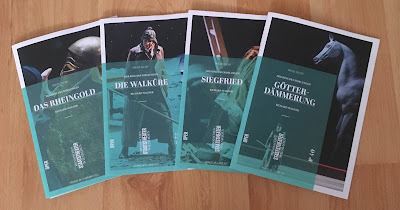Francouzský institut v Praze pokračuje ve vysílání své řady přenosů
oper a představení. Národní opera v Paříži LIVE uvede 20. června Popelku.
V létě připravujeme novou řadu záznamů z festivalu v Aix-en-Provence a
13. července jako doprovodný program festivalu Letní slavnosti staré
hudby záznam barokní opery Měšťák šlechticem.
"Než karneval skončí budou mou Popelku všichni milovat…," řekl
Rossini v roce 1817 po neúspěšné premiéře zcela přesvědčený o tom, že z
ošklivého káčátka se nakonec vyklube krásná labuť. A budoucnost mu dala
za pravdu. Přitom skromná služebná snící o tom, že půjde na ples, přišla
v opeře o všechny magické triumfy, které měla v povídce od Perraulta – v
opeře nenajdeme vílu, jež by mávnutím kouzelné hůlky proměnila myši v
koně, krysy v kočí, ještěrky ve sluhy. A neztratí střevíček, ale
náramek, který mimochodem kráska záměrně nechá svému princi, aby ji
našel. Osvícenectví se již rozzářilo po celé Evropě, avšak Cenerentola
se zaměřuje na to nejpodstatnější : konfrontovat se se sebou sama v
jiném společenském postavení a pod hadry najít krinolínu. Guillaume
Gallienne, člen Comédie Française, režíruje svou první operu.
LA CENERENTOLA - POPELKA
Hudební nastudování Ottavio Dantone
Režie Guillaume Gallienne
Scéna Éric Ruf. Kostýmy Olivier Bériot
Orchestr a sbor Národní opery v Paříži
Nastudování v italském originálu, francouzské a české titulky
Don Ramiro: Juan José De León
Dandini: Alessio Arduini
Don Magnifico: Maurizio Muraro
Clorinda: Chiara Skerath
Tisbe: Isabelle Druet
Angelina: Teresa Iervolino
Alidoro: Roberto Tagliavini
Francouzský institut v Praze připravil na léto speciální
program "Operní léto v Kině 35" - od baroka po současnost, opery z
Festivalu v Aix-en Provence a další záznamy francouzských představení.
Produkce z Aix-en Provence je zdarma. Program Operního léta v Kině 35.




























